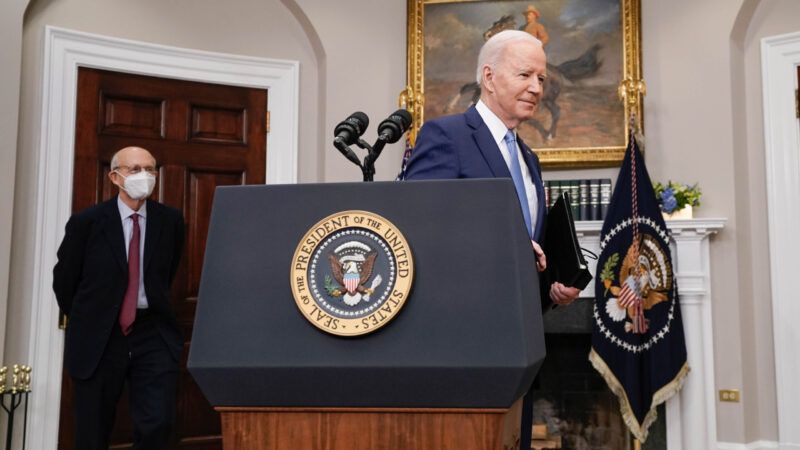The Potential Biden SCOTUS Pick Who Is No Friend to Criminal Justice Reform
Civil libertarians have reason to be wary of Judge J. Michelle Childs.

As a presidential candidate, Joe Biden made various efforts to distance himself from his long and unseemly record as an inveterate drug warrior and law enforcement booster. Alas, Biden is now reportedly considering replacing Justice Stephen Breyer with a South Carolina judge who has her own regrettable record of judicial deference toward the government in criminal justice cases.
That judge is J. Michelle Childs. She was appointed to the U.S. District Court for the District of South Carolina in 2010 by President Barack Obama. In terms of politics, she is well-connected to Democratic Party power brokers. As The New York Times has reported, Rep. James Clyburn (D–S.C.), whose endorsement is widely credited with helping Biden to win the South Carolina primary, has been lobbying Biden directly to name her to SCOTUS. "It is a blatant effort to call in a political favor in the form of a lifetime appointment to the nation's highest court," noted Times reporter Annie Karni, "and, perhaps, the most consequential test yet of the Biden-Clyburn relationship."
It is also a test of Biden's commitment to criminal justice reform, which remains an important issue within the Democratic coalition. It is a test because criminal justice reformers have good reason to be wary of Childs. As The American Prospect's Alexander Sammon has detailed, Childs' record as a district court judge is replete with "such punitive decisions on criminal justice issues that those rulings were eventually overturned on appeal." In the words of The New Republic's Matt Ford, Childs is "the Supreme Court shortlister who has liberals worried."
Criminal justice reformers of every stripe might be worried about Childs' judgment in the case of United States v. Whaley (2018). At issue was a federal prisoner's claim that his lawyer failed to provide effective counsel when that lawyer did not file an appeal, even though, according to Gerald Whaley, he specifically asked his lawyer to file it. In Roe v. Flores-Ortega (2000), the Supreme Court said that a "lawyer who disregards specific instructions from the defendant to file a notice of appeal acts in a manner that is professionally unreasonable." Still, Childs ruled against Whaley.
Childs' ruling was rejected in no uncertain terms by the 4th Circuit. "In the proceedings below," the appellate court explained, "Whaley filed an affidavit stating unequivocally that he informed his counsel at sentencing that Whaley wished to file a direct appeal, but that counsel failed to file one." And "because the success of this ineffective assistance claim ultimately hinges on a credibility determination, an evidentiary hearing was required." Yet Childs dismissed Whaley's claim without holding any such required evidentiary hearing. According to the 4th Circuit, "the district court abused its discretion by not holding one."
To say the least, a judge who "abused [her] discretion" in such a case is not the sort of Biden SCOTUS pick that criminal justice reform advocates have been hoping for.


Show Comments (136)